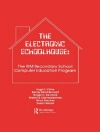Returning seven years later to their original pieces from this landmark book, over 20 leading scholars and activists revisit and reframe their rich contributions to a burgeoning scholarship on Whiteness. With new reflective writings for each chapter, and valuable sections on relevant readings and resources, this volume refreshes and enhances the first text to pay critical and sustained attention to Whiteness in education, with implications far beyond national borders. Contributors include George Sefa Dei, Tracey Lindberg, Carl James, Cynthia Levine-Rasky, and the late Patrick Solomon. Courageously examining diverse perspectives, contexts, and institutional practices, contributors to this volume dismantle the underpinnings of inequitable power relations, privilege, and marginalization. The book’s relevance extends to those in a range of settings, with abundant and poignant lessons for enhancing and understanding transformative social justice work in education. Revisiting The Great White North? offers terrific grist for examining the persistence of Whiteness even as it shape-shifts. Chapters are comprehensive, theoretically rich, and anchored in personal experience. Authors’ reflections on the seven years since publication of the first edition of this book complexify how we understand Whiteness, while simultaneously driving home the need not only to grapple with it, but to work against it. Christine Sleeter, Professor Emerita, California State University Monterey Bay Our understanding of racial inequities in education will be impoverished unless we look deeply at White privilege, its variation in different contexts, and resistances to change. Such is the call in this important book by Lund, Carr, and colleagues, whose analyses within Canadian contexts, framed and re-framed for this captivating revised edition, will be useful to educators and scholars around the world. Read this book today. Kevin Kumashiro, Dean, School of Education, University of San Francisco;President, National Association for Multicultural Education Darren Lund and Paul Carr have given the contributors to their original 2007 text the opportunity to revisit, rethink, reconceptualize, and reframe their earlier work. The result is an interesting, invigorating, and unsettling group of chapters that challenge readers to also revisit and rethink their own ideas about Whiteness, privilege, and power …. Teachers, administrators, policymakers, and researchers will all benefit from this critical work. Sonia Nieto, Professor Emerita, Language, Literacy, and Culture College of Education, University of Massachusetts, Amherst Lund and Carr bring together a superb collection of authors who collectively challenge readers to go beyond liberal platitudes about race … until educators confront the political, social and economic consequences of inequitably distributed privilege, the path towards equality and freedom will remain elusive. By immersing us in the discourse of Whiteness, the essays in this book illuminate that very path. Joel Westheimer, University Research Chair & Professor, Faculty of Education, University of Ottawa
قائمة المحتويات
Foreword to the Second Edition (2014); Foreword (2007); Acknowledgements (2014); Acknowledgements (2007); Introduction: Reframing Whiteness (2014); Section 1: Conceptualizing Whiteness; Exploring the Authority of Whiteness in Education: An Auto-Ethnographic Journey; Reframing: Kathleen S. Berry (2014); Before I Was White I Was Presbyterian; Reframing: Tim Mc Caskell (2014); Being White and Being Right: Critiquing Individual and Collective Privilege; Reframing: James Frideres (2014); Section 2: Whiteness and Second Peoples; Going Native: A White Guy’s Experience Teaching in an Aboriginal Context; Reframing: Herbert C. Northcott (2014); On Indigenous Academia: The Hermeneutics of Indigenous Western Institutional Participation—Eleven Theorems (2014); “Don’t Blame Me for What My Ancestors Did”: Understanding the Impact of Collective White Guilt; Reframing: Julie Caouette & Donald M. Taylor (2014); Section 3: Developing and De-Constructing White Identity Development of Anti-Racist White Identity in Canadian Educational Counsellors; Reframing: Christine Wihak (2014); “Radical Stuff”: Starting a Conversation about Racial Identity and White Privilege; Reframing: Susan A. Tilley & Kelly D. Powick (2014); Who Can/Should Do This Work? The Colour of Critique; Reframing: Carl E. James (2014); Section 4: Learning, Teaching, and Whiteness; The Parents of Baywoods: Intersections between Whiteness and Jewish Ethnicity; Reframing: Cynthia Levine-Rasky; Re-inscribing Whiteness through Progressive Constructions of “the Problem” in Anti-Racist Education; Reframing: Lisa Comeau (2014); Discourses on Race and “White Privilege” in the Next Generation of Teachers; Reframing: Beverly-Jean M. Daniel (2014); White Female Teachers and Technology in Education: Reproducing the Status Quo; Reframing: Brad J. Porfilio (2014); Section 5: The Institutional Merit of Whiteness; Whiteness and Philosophy: Imagining Non-White Philosophy in Schools; Reframing: Laura Mae Lindo (2014);De-Centering Normal: Negotiating Whiteness as White School Administrators in a Diverse School Community; Reframing: Debbie Donsky and Matt Champion (2014); “A Group That Plays Together Stays Together”: Tracing a Story of Racial Violence; Reframing: Gulzar R. Charania (2014); The Whiteness of Educational Policymaking; Reframing: Paul R. Carr (2014); A Chronic Identity Intoxication Syndrome: Whiteness as Seen by an African-Canadian Francophone Woman (2014); Additional Whiteness Resources (2014); Biographies (2014); Index.












